On a rainy late afternoon in San Mateo, CA, Game Informer sat down with Sony Interactive Entertainment Worldwide Studios chairman, Shawn Layden. Dressed sharply and with a charming grin, he made a telling observation just before our interview. The chairs were beautiful, but just didn’t quite fit his stature, and he opted for the conference table for us to chat.
I thought the choice represented Sony Interactive Entertainment lately. Yes, there are plenty of things going on in games, from the success of Switch to the Battle Royale craze that brands have been chasing to compete in throughout the industry, but Sony has stuck to what it does best: Solid hardware coupled with the games that focus on single-player experiences or trying to push the boundaries on what games can be, from VR to Dreams.
Know yourself and know what you like – and after our talk, it was easy to tell that Shawn Layden’s long history with the company (he has been with the interactive group since 1996) has taught him to lean into what he knows. He also needs to make sure he is taking a few chances, even though he didn’t want to take a chance with the ill-fitting couch and chairs.
Game Informer: Games are always changing. You guys have done an amazing job of innovating, and there was even a time when people were saying single-player games are dead, and you said, “That’s cute…”
Shawn Layden: Hold my beer.
Do you see multiplayer, games-as-service – things you have not done historically – do you think you need to open up Worldwide Studios to these types of games?
I think we have to do both. That’s not a cop-out. I think we have set the high-water mark for being the best in long-form narrative gaming. We have some of the best storytellers in the business working on Worldwide Studios projects, whether that’s Sucker Punch or the team at Bend working on Days Gone, and of course Naughty Dog and Santa Monica Studios. I think that’s a super strength of ours. I was very happy to see that three of the five of the game of the year nominees are Worldwide Studios games.

Spider-Man is phenomenal, as well.
I was happy to see Detroit get some love because that’s a very complex game, certainly from the development side of things the team at Quantic put their heart and souls into that game. They’re the only team in the world that can do that branching narrative story design. To have their team recognized, as well, was pretty validating for us. To know that the choices we’re making to lean heavily into stories and narrative and to create worlds where people will lose themselves in the story of another person or culture or an environment? We’re very proud of that. We will continue to execute our franchises on that.
As far as games-as-service and esports, or recurring revenue models or whatever – if we can do something interesting and meaningful in those areas, we’ll do it. If we were going to partner with another team in some capacity to deliver, again, something interesting and meaningful, we’ll be there and we’ll do it. It’s not that we’re not interested in those areas, it’s just an area we haven’t historically performed very well. If I were Peter Guber, no sooner would I go to the Golden State Warriors and say, “So you guys have won a lot of world championships, but can you play baseball? Sport is sports, right!“ But if there are new teams that have something we can associate with, then certainly. We want to push the boundaries in all the different areas of gaming. It’s important for us to do that.
When you look at gaming and where games are going, there are a lot of versions of that. There are those saying I am going to give you a dongle on a controller and you’re going to stream all the greatest games in the world, and we’re going to engage the gamer with subscriptions moving forward. There are a lot of options. What do you think the future of gaming holds? How do we find ourselves engaged in gaming in the future? Is it a console? Is it apps on our phone or PC? It is all of those things?
It is all of the above. When I began my journey in gaming, even if we just limit it to the PlayStation experience, it was still pretty much, if not niche then, well… it was not a mainstream activity. It was something you associated with young children or teenagers doing, but certainly not by the time you go to college. “Dude, you’ve got a record player – why would you need the game console?” People would actually evaporate away from it. That has changed so much in our time in this space. You hear proper mainstream press talking about music, movies, games. We’ve gone from being the third cousin in entertainment to being one of the three bright stars. Arguably, depending on how you do the math, the largest one from impact on a financial basis. The fact of the matter is, it’s so changed that there used to be a time where we were recruiting people in gaming and by and large they all came from game companies, but now we’re looking for an executive in finance and you get applications from like, “Well, you were the executive CFO at Visa. Why do you want to come work for games?” Just the business overall has become a proper industry.
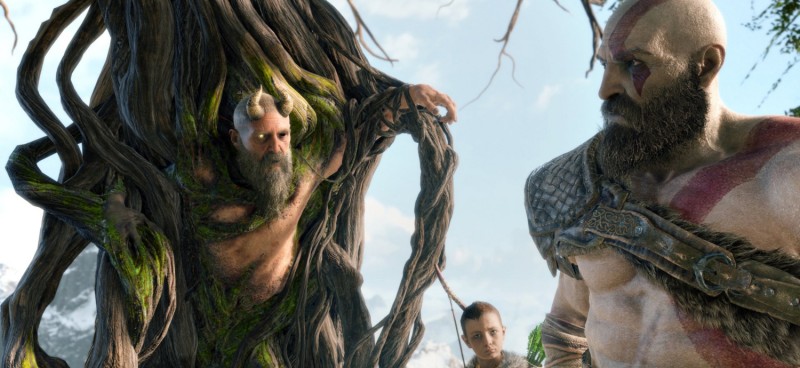
It is one of the stories we tell a lot when we go to universities and talk with students about careers in gaming and they say, “Well I don’t code and I don’t draw.” That’s okay. We have marketing departments and sales departments and human resources, and customer service – we’ve got the whole spectrum and you can be part of the gaming industry if you like, even if you don’t code or draw or make music.
It has changed so dramatically over the last 10, 15 years. The future, to me, is just a continuation of that trajectory. And what we’re bringing to the gaming experience through things like virtual reality, some people are leaning into augmented reality – it’s a fascinating business to be in. Certainly on the studio side of things, innovation and quality and being creative and bringing the story, and telling people who you can become and who you can be in this world… there’s a creative spin, but there’s also this huge technology train that runs right alongside it. Both of these have to move, and there aren’t other businesses that have the same storytelling power and impetus, again, tied to, what’s this technology locomotive going to provide and bring to me? It’s ever exciting because it’s ever changing. I think we’re just going to see more of that. The power in phones and tablets is already well beyond what a PlayStation One would give you. The power of my Fitbit is more than the Apollo 11.
I don’t want to put too fine a point on this because it might upset some of the people I work with, but I think effectively, we’re looking at kind of a post-console world where you can have quality gaming experiences across a variety of technologies. Sure, PS4 and PS4 Pro provide what, of course, we think is the best gaming experience, but the other consoles out there, be it Switch, Xbox One X, or tablets, or phones – there are great experiences across all these. What we need to do is recognize all that. We’re not little gaming ghettos that are not federated or aligned at all. We’re all part of the same gaming community, we just come at it through different doorways. I think the future will be an extension of that metaphor. Your platform is not your hideaway. It’s just your doorway to all these other gamer folk.
You care about the movie, not the projector it’s run on.
Precisely. I remember years ago you would see, “This is in Cinemacolor! This is in technicolor! This is in Panavision!” and I just thought, “Okay. Get me to my movie.” I think we’re approaching that for the gaming community where we are just one gaming community.
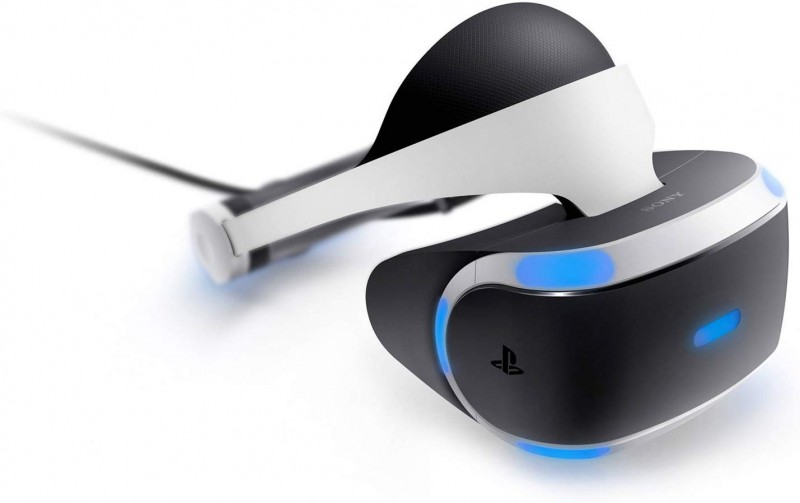
You had the Vita in the past, PlayStation Now, PSVR. You have experience in those disparate realms. Have you taken any lessons from those realms?
Yes, of course there are lessons. I think we have learned a lot of lessons about what, at our core, are we trying to convey or represent. And how do we take whatever that new technology is or service – and sometimes even new genres of game – how do we tell the story that gets you, the fan, excited or interested? We have to tell the story, not of why streaming is cool, but why you should care. What is it about having a streaming service like PlayStation Now that differentiates it from your other gaming experiences. Certainly I think one of the big benefits of PlayStation Now is its ability, on my PS4, to play the PS3 catalogue.
One of the terrible circumstances of our gaming industry is that every time we launch a new console technology, we sort of put the last generation to bed. That doesn’t occur in movies. That doesn’t occur in music, but it occurs all the time in games. But PS Now is a way where all of a sudden you can bring back to life an entire PS3 catalogue though your PS4, through the streaming technology. It’s kind of new, kind of different. You can see what that would suggest for the future, so I think that was a good experiment. Maybe we didn’t explain it enough to really illustrate why it should be important to you.
With some of our technology pieces, I think PSVR is a very exciting space for us to be. They talk about first mover advantage? I’m sure there is another word about first mover that doesn’t have the word advantage in it, but we are pioneers. We aren’t good followers. I think we’re better leaders. And with PSVR, what I like about it… there have been very few times in my career – and I have been working in technology since the late ’80s – when you get to be part of a truly 1.0 experience. The problem is nowadays, people’s expectations and spans are so short. Now it’s, “Oh! PSVR, that’s great! When is it going to be this size?” I try to put into context for people and I say, “Remember that funny Nokia phone that had that ringtone that we all had back in the day? You can’t look at that Nokia phone and look at your smartphone and see how you got to there.” By the same token, you look at PSVR right now, none of us are going to be able to imagine what it will look like 10 years from now, but the change will be that dramatic. You can’t get to 5.0 until you do 1.0. It’s just the nature of the thing.
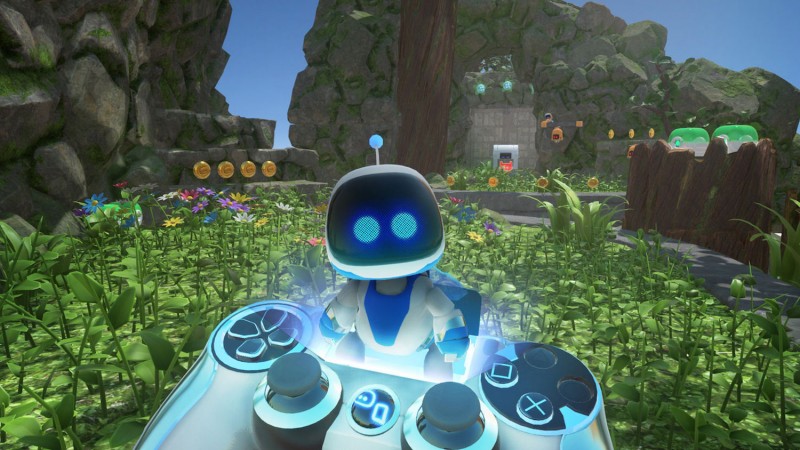
We’re working with PSVR and trying to get people to understand that, we wanted to make the easiest-to-adopt VR kit. If you have a PS4, you’re in. You just need the headset. Super comfortable. Easy to put on, easy to take off. Maybe we could have reduced some of the wires a bit. I will say that.
Working through the software cycle that supports that, as with any new technology you have your first generation of games that look like just the last generation of games, but a little bit better. We talked about PS1 being 3D gaming, but there were a lot of 2D, or 2.5D games in the first generation of PlayStation because the whole idea of creating a 3D game back then was, how do I get my head around that? So for the first generation of PSVR content looks like it could have been up on that screen and we put it in a wrap-around headset. That’s the nature of it. The developers are getting their head around it. What does this mean? How does this work? Let’s get a game, as we understand it, running in this technology, and then let’s see where we go from there. I think the evolutionary cycle that I like to point to is Astro Bot. Astro Bot cannot really be played on a TV. It has to be played in VR, and that was one of our first steps. When we start getting content that can only be realized in VR, then we know we are on to something. I think we’re the biggest VR platform in the world. We’ve learned a lot from that experience.
Maybe one less wire.
I’ve had so many arguments about this. Even when we had VR on our cover, I said, “This shows it’s viable, and it’s something you can do, but there are literal technological things that need to happen to get it to be as comfortable as you want it to be.” You have to invest and take those first steps that are going to be a more rickety chair rather than an Aeron.
We have to work through that, and that’s a whole learning curve, and we’re getting there, but VR starts getting exciting as well. When we brought Hollywood showrunners up here to give them the first look and see what VR could mean for linear programmed TV and film, almost to a person, when they took the headset off… well, it began with an expletive, but then they said something to the equivalent of, “This blows up narrative. How am I as a director… if you have agency in this experience, how do I get you to look at the right things at the right time?” I joked with them and said, “You have enjoyed the tyranny of the camera. You have to look at this! Make sure to get that reaction.” They said, “How are we going to know how to make them look here or there?” I said, “Lucky for you, there is a whole group of people who have learned to solve that problem.” “Who are they?” Game designers.
Game designers have been putting that invisible hand into so many games for so many years. All that time when you thought you had free will? “I am making all the choices myself!” Sure you are. “I’m going to go over there because I want to.” Sure, because you want to.
I think there is an interesting confluence that is going to occur for even the film and television community coming to VR that I think games are going to be very helpful with. Right now we’re working on, with our cousins at Sony pictures, a Breaking Bad VR piece.
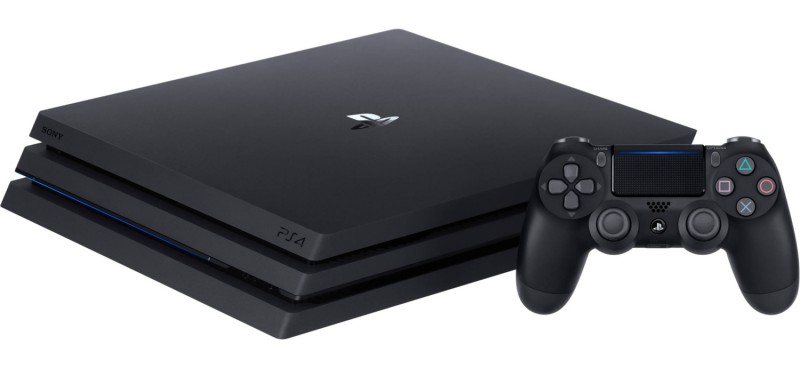
That will be intense.
Hopefully. You have no idea. I don’t think there is any throwing pizza on top of the garage, but other than that.
I think it is important, as a platform holder – and we discussed earlier how that term is changing a bit – that if you want to be a leader, you need to be out there trying new things and learning them, because you won’t make a great VR game on your first shot.
No, you won’t. And if you let the technology curve race too far ahead without getting in with your own, you will never catch up.
What lead you to the decision to back away from E3 in 2019?
We’ve been going to E3 since the beginning, which was… 1995, I believe was the first E3. Back in 1995, and PlayStation One was just out and there were Sega Saturns, there was some Nintendo stuff going on, I’m sure. It really was a trade show focusing on retailers and the media. No general admission, just people in the industry. Retailers would come up and say things like, “Hi, I’m from Sears and I’m the buyer. I’m in charge of Hot Wheels, Barbie, VHS, and video games. So what’s this PlayStation thing I am hearing about?” And there was a huge educational component, talking to retailers. Sharing what games were coming out and what products we had, all across the industry. Back then you had actual magazines that were printed on paper.
[Laughs] Oh, I know. Though, we definitely are the vinyl today.
There were longer lead times, obviously, you know your business.
I also remember standing in lines with that guy from Toys ‘R Us and he was like, “I do Barbie, and now we need to do video games.” That would be an interesting learning curve.
There was functionally no internet then. So, fast forward 22, 23 years. In our business, we conclude all of our major retail activities at an event we call Destination PlayStation which occurs in February. The media landscape has changed, which you know better than anybody, and with the internet being on 24-7, there is no silent periods where people aren’t getting game news.

There is not.
It’s happening all the time, so those constituencies have become sort of lesser impact at this event, and so you begin to wonder – and this is not necessarily new, this has been going on for some time – what is E3?
I would agree.
What does this show become? They’ve tried the last couple of years – ‘they’ being the ESA. I’m on the board so it’s me, too – brought in ‘prosumers’ or people who could get in on a very limited ticket program and you could see very quickly, there is no such thing as a hybrid trade show and consumer show. That’s just a car crash. Either your show is optimized around the consumer experience, à la Tokyo Game Show, à la Gamescom, or you’re a trade experience like CES or the Motor Show, or E3. The Motor Show I understand because cars are heavy and getting them all together in one place is a massive undertaking, but we’re gaming. We live in the ether. We’re digital. We’re everywhere at once. So what is the role of an event that occurs at, frankly, an arbitrary date in June? How does that work for all the stories you want to tell? This year, coming to 2019, I’ll be honest – we just didn’t have a new story to tell. And when Sony rings the bell for everyone to come ‘round, they have an expectation for something that is completely new and amazing. We looked at the lineup and we can probably only give fans a lot of updates on things they already know, so how does this work for us?
We’re doing fewer games at any given time than any time before in our history. Back in the day, when we were doing 15-20 games at a time; there was always a new game. Something was in a window that we could have that conversation about. But 2019, for us, that confluence just didn’t occur. So rather than raising fans’ expectations for them to think, “Oh what’s Sony going to be saying at E3?” We decided we would step away. To be fair, we weren’t the first company to do that. EA and Activision have stepped back, and Microsoft has scaled down. This has engendered a conversation in the halls of the ESA. What do we do? How do we transform E3 into a place of more relevance and now. You look at Comic Con crowds and you get desirous of that, or PAX East or PAX West, and the kind of energy that comes from those shows.
We can speak directly to our fans like never before, and they want to come and associate themselves with our activities as never before. We probably want to find a way to embrace that cohort because that’s what it’s all about. It’s all about direct to consumers. How am I telling my story? And what am I able to show them? So, I would like to see E3 turn into more of a festival of gaming. It’s not this company against that company and that company against this company. We’re not in our hideaways on our platforms, we’re just doorways into this room full of gamers. That’s my future hope for E3.
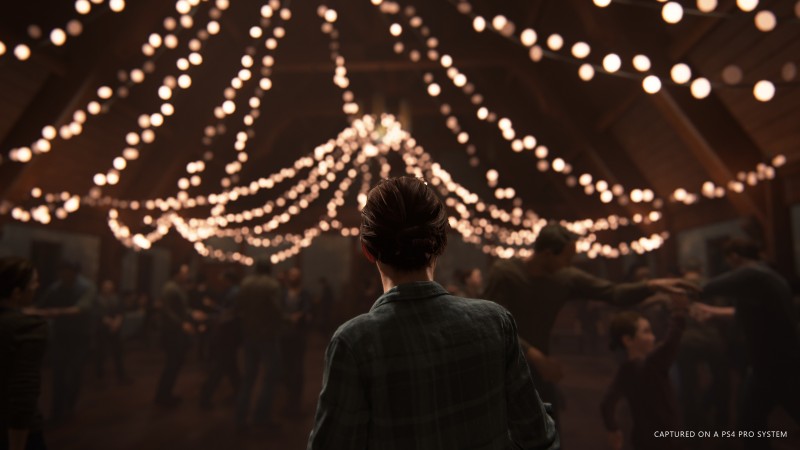
Why is the ESA reluctant to embrace the more fan-focused style of show?
It’s not really reluctant. As a collective, we don’t know what we don’t know and it is… is this Prince of Persia? If I jump, will the bridge be there? That’s what the ESA is right now. If we jump from the trade show thing to the consumer show… I do think the bridge will appear. We did PSX, we didn’t know what that was going to be like. We did it for the 25th anniversary of PlayStation, but we got lucky. If you build it, they will come. That’s the conversation we’re having in real time right now with the ESA. Just because PlayStation is not at E3 2019 doesn’t mean we won’t be there in 2020.
You guys definitely made a step forward. When I think of Sony, I think of like, we’re doing Beta no matter what. Betamax all the way!
Wow. You’re going there?
I’m going there, because I felt that that has been a cultural thing, and I think that having cross-play – I know it’s in its beta at the moment with Rocket League and Fortnite – but that’s a big change for Sony as far as an attitude toward that community you’ve been pointing to.
The whole concept of cross-play, or the movement behind it, whatever you want to call it, really got big in our rear-view mirror super-fast. There’s something back there, and things are closer than they appear, and there it was. We were looking at it, “Fortnite? Rocket League? The biggest communities for those games are here,” and there were discussions about what are the implications of that. We like to manage our online communities as curated as possible. How do we ensure the same quality of experience if we let everyone come into the sandbox at the same time. And, again, the PlayStation community is so large it’s not like you couldn’t fill up a lobby if you wanted to fire up a game.

But I think we learned, from the feedback from our fans, that it was important. And it wasn’t just important to a vocal minority. Though, if you look at any of the numbers of the actual cross-play population? That Venn diagram isn’t too big. Even the fans who weren’t personally going to participate in a cross-play activity across different hardware pieces, just felt that it was kind of tone-deaf of PlayStation. We’ve tried to be so good certainly over the last four or five years to be in tune with our fans and to listen to what they want and try to be a friends of the gamer. We looked at that approach. This… this is just not friendly.
We got to that determination a lot faster than you read about it on the internet or heard people talk about it. It’s just that, and I’ve used this phrase a couple times, it’s not just like flipping a switch. And then people online said, “Of course it is!” No, of course it isn’t. When we did turn it on, light it up, we wanted to make sure we had thought out all the different ramifications of cross-play, cross-purchase, cross-progress, Those are all three very discreet aspects of what cross-play is, and there are decisions you make in provisioning those different pieces of it that if you make it quick and hasty, and the wrong decision, you can put yourself in a corner really fast, and that prevents scalability over time and the ability to bring people in in a secure and safe way.
We got to that place in Fortnite and it seems to be going reasonably well, from what I can tell. The Rocket League light up will happen soon. People keep saying, “Why doesn’t Sony allow more people to have it?” We’re open for business on this one. All it takes is for publishers and developers who wish to permission it. As ever, just work with your PlayStation account manager, and they will walk you through the steps that we’ve learned through our partnership with Epic on how this works. I don’t believe right now there is any gating factor on that. I think they’re open to make proposals, because the Fortnite thing worked pretty well.
